Thesaurus : Doctrine

► Référence complète : L. Aynès, "L’arbitre, organe indirect et direct de l’Obligation de Compliance ?", in M.-A. Frison-Roche (dir.), L'Obligation de Compliance, Journal of Regulation & Compliance (JoRC) et Dalloz, coll. "Régulations & Compliance", 2024, à paraître
____
📕lire une présentation générale de l'ouvrage, L'Obligation de Compliance, dans lequel cet article est publié
____
► Résumé de l'article (fait par le Journal of Regulation & Compliance - JoRC) :
________
Thesaurus : Doctrine

► Référence complète : Ch. Lapp & J.-Fr. Guillemin, "L’usage de l’arbitrage international pour renforcer l’obligation de Compliance : l’exemple du secteur de la construction", in M.-A. Frison-Roche (dir.), L'Obligation de Compliance, Journal of Regulation & Compliance (JoRC) et Dalloz, coll. "Régulations & Compliance", 2024, à paraître
____
📕lire une présentation générale de l'ouvrage, L'Obligation de Compliance, dans lequel cet article est publié
____
► Résumé de l'article (fait par le Journal of Regulation & Compliance - JoRC) :
________
June 12, 2024
Thesaurus : Doctrine

► Full Reference: J.-B. Racine, "L’arbitre, juge, superviseur, accompagnateur ?" (The arbitrator, judge, supervisor, coach?), in M.-A. Frison-Roche (dir.), L'Obligation de Compliance, Journal of Regulation & Compliance (JoRC) and Dalloz, coll. "Régulations & Compliance", 2024, forthcoming.
____
📕read the general presentation of the book, L'Obligation de Compliance, in which this article is published
____
► English Summary of this article (done by the Journal of Regulation & Compliance - JoRC) : From the outset, the author sets out what is at stake in these terms: "Quel rôle peut ou pourrait jouer l’arbitre dans les dispositifs de compliance ? Selon le rôle qu’il est amené à jouer, il peut ou pourrait venir en renfort de l’obligation de compliance. Poser cette question, c’est poser la question des pouvoirs de l’arbitre et de son office. C’est aussi, d’une certaine manière, renvoyer à la notion même d’arbitrage." (What role can or could the arbitrator play in compliance systems? Depending on the role he/she is called upon to play, he/she can or could reinforce the compliance obligation. Asking this question raises the question of the powers of the arbitrator and his/her office. In a way, it also goes back to the very notion of arbitration).
In practice, arbitrators deal with compliance issues in their office as judges. This is illustrated by disputes involving allegations of corruption, where the arbitrators' ruling obviously cannot give effect to a corrupt practice unless they violate themselves international public order. But in this, the arbitrator is only applying a legal standard, the main issue being then the question of evidence, with compliance tools often serving as indicators of the corruption itself. Leaving behind the strict legal source and coming to the standards issued by the ICC about the fight against corruption, we really enter into the "compliance obligation", in the strict sense, when a contract appears.
International business practices standards are emerging, not only in the area of probity but also in the protection of human rights, for which arbitrators can now act as guarantors. Arbitrators can do this, in particular, through the emerging litigation relating to vigilance obligation, either directly when vigilance plans are at issue,, even if a legal rule gives a specific competence to a State court (as the French 2017 law does) or if we imagine that a plan itself includes a system for recourse to arbitration, which would imply a change in culture, or if we consider that soft law is in the process of emerging from the practices of international trade laying down a duty of vigilance that arbitrators could take up.
In the second part of his contribution, the author takes a second, bolder approach, namely that of an arbitrator who understands Compliance Law in that he/she would be more than a Judge, i.e. he/she would do more than settle a dispute by applying the law.
This would be conceivable given the tendency to consider that the arbitrator could modify contracts and if example is taken from the technique of arbitration practised for concentration disputes in merger law. To give arbitration the required regulatory dimension, this third party would have to be able to exercise a supervisory function, which the notion of "dispute" hardly lends itself to, especially as an arbitrator is only set up to be a judge, and if he/she ceases to be one it is difficult for him/her to remain an arbitrator.... However, it is conceivable that in Ex Post the arbitrator could perform the monitoring function often required in Compliance Law. The technique of disputes boards is inspiring in this respect. The two fields, Arbitration and Compliance, are thus destined to move closer together, as the two traditional limits, arbitrability and litigation, are in the process of evolving so that they no longer stand in the way of such rapprochements.
The author can therefore conclude: "C’est aux différents acteurs de la compliance de penser à l’arbitrage, et à la souplesse, la plasticité et la liberté qu’il offre, pour éventuellement le configurer spécialement au service des buts de la compliance." (It is up to the various players in Compliance to think about Arbitration, and the flexibility, plasticity and freedom it offers, in order to configure it specifically to serve the goals of Compliance Law).
________
Feb. 9, 2024
Conferences
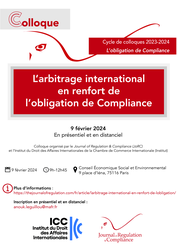
🌐follow Marie-Anne Frison-Roche on LinkedIn
🌐subscribe to the Newsletter MAFR Regulation, Compliance, Law
____
► Full Reference: M.-A. Frison-Roche, "Préalable : ce qu'est un engagement" ("Prerequisite: the Commitment"), in L. Aynès, M.-A. Frison-Roche, J.-B. Racine and E. Silva-Romero (dir.), L'arbitrage international en renfort de l'obligation de Compliance (International Arbitration in support of the Compliance Obligation), Journal of Regulation & Compliance (JoRC) and Institute of World Business Law of the ICC (Institute), Conseil Économique Social et Environnemental (CESE), Paris, February 9, 2024
____
🧮see the full programme of this event
____
🌐consult on LinkedIn a general presentation of this event, which links to a presentation of each speech (in French)
____
____
🔲see the slides used to support the presentation (in French)
____
🎤see a presentation of the conference "Préalable : ce qu'est l'Obligation de Compliance" ("Prerequisite: what is the Compliance Obligation"), given at the same symposium
____
🎤see a presentation of the conference "Le renforcement des engagements de Compliance par le renvoi Ex Ante à l'arbitrage international" ("Reinforcing Compliance commitments by referring Ex Ante to International Arbitration") which was finally not pronounced but will be the subject of an 📝article in the forthcoming book 📘Compliance Obligation
____
► Presentation of the conference: Having defined the Compliance Obligation in "Préalable : ce qu'est l'Obligation de Compliance" ("Prerequisite: what is the Compliance Obligation"), I set out to define what a commitment is.
No one doubts that commitments, as words, constitute facts that can engage the liability of companies if there are inconsistencies or lies. The question today is whether a commitment can constitute a legal act, binding in ex ante.
Companies make commitments either to fulfil their legal Compliance obligations, which is simply obeying the law, or to express their own wishes, either for themselves or for others. The cases are often confused, even though the scope is not the same.
If the commitment takes the form of a contract, Compliance is concerned if the contract is used as an Ex Ante Compliance Tool📎
The commitment, a concept that comes more from the Economics of Regulation, was conceived between a Regulatory Authority and a Company: it is the unilateral decision of the Authority that gives legal force to the commitment. Case law confirms this (Conseil d'État (French Council of State)📎
If commitment is central to Compliance, particularly Vigilance, it is because Compliance Law is an extension of Regulatory Law📎
In drawing up a plan, the company is fulfilling its legal obligation. But if we were to consider that it is a commitment, then we would also have to consider that the plan is the result of its will, that it must consult the stakeholders in its preparation, but that the source of the plan is its will: the provisions are not stipulations, are not applications of the law, but unilateral voluntary provisions.
In this respect, and because its source is the will of the company (which does not prevent its co-construction), a plan could contain a "graduated offer" of arbitration.
This offer could be included in commitments that are less regulated by law, such as those made in the context of CSR.
________
🕴️M.-A. Frison-Roche (ed.), 📘Compliance Tools, 2021.
Feb. 9, 2024
Conferences

🌐follow Marie-Anne Frison-Roche on LinkedIn
🌐subscribe to the Newsletter MAFR Regulation, Compliance, Law
____
► Full Reference: M.-A. Frison-Roche, "Préalable : ce qu'est l'obligation de Compliance" ("Prerequisite: the Compliance Obligation"), in L. Aynès, M.-A. Frison-Roche, J.-B. Racine and E. Silva-Romero (dir.), L'arbitrage international en renfort de l'obligation de Compliance (International Arbitration in support of the Compliance Obligation), Journal of Regulation & Compliance (JoRC) and Institute of World Business Law of the ICC (Institute), Conseil Économique Social et Environnemental (CESE), Paris, February 9, 2024
____
🧮see the full programme of this event
____
🌐consult on LinkedIn a general presentation of this event, which links to a presentation of each speech (in French)
____
____
🔲see the slides used to support the presentation (in French)
____
🎤see a presentation of the conference "Préalable : ce qu'est un engagement" ("Prerequisite: the Commitment"), given at the same symposium
____
🎤see a presentation of the conference "Le renforcement des engagements de Compliance par le renvoi Ex Ante à l'arbitrage international" ("Reinforcing Compliance commitments by referring Ex Ante to International Arbitration") which was finally not pronounced but will be the subject of an 📝article in the forthcoming book 📘Compliance Obligation
____
► Presentation of the conference: I have first dealt with the very definition of the Compliance Obligation.
After showing that the relationship between Compliance Law and International Arbitration will naturally develop, because the companies subject to it are international, because they contractualise their legal Compliance obligations and because Compliance is being jurisdictionalised📎
This culture of compliance is achieved either through compliance contracts📎
The obligation of Compliance which then takes concrete form consists for the company not in making effective Ex Ante all the regulations which apply to it (conception of conformity which is at once unreasonable, blind and impossible), but in making its best efforts, which it must make visible (see Compliance Evidence System📎
These Monumental Goals are systemic. The aim is to protect systems from collapse (Negative Monumental Goals) or to make them better (Positive Monumental Goals)📎
The role of the Judge, and therefore also that of the Arbitrator, is renewed.
________
🕴️M.-A. Frison-Roche (ed.), 📘Compliance Jurisdictionalisation, 2024.
🕴️M.-A. Frison-Roche, 📝The Judge, the Compliance Obligation and the Company. The Compliance Evidence System, in 🕴️M.-A. Frison-Roche (ed.), 📘Compliance Jurisdictionalisation, 2024.
🕴️M.-A. Frison-Roche, 📝Compliance Monumental Goals, Beating Heart of Compliance Law, in🕴️M.-A. Frison-Roche (ed.), 📘Compliance Monumental Goals, 2023.

Feb. 9, 2024
Organization of scientific events

🌐follow Marie-Anne Frison-Roche on LinkedIn
🌐subscribe to the Newsletter MAFR Regulation, Compliance, Law
____
► Full Reference: L. Aynès, M.-A. Frison-Roche, J.-B. Racine and E. Silva-Romero (dir.), L'arbitrage international en renfort de l'obligation de Compliance (International Arbitration in support of the Compliance Obligation), Journal of Regulation & Compliance (JoRC) and Institute of World Business Law of the ICC (Institute), Conseil Économique Social et Environnemental (CESE), Paris, February 9, 2024
____
____
🏗️This symposium takes place in the cycle of symposiums organised by the Journal of Regulation & Compliance (JoRC) and its partners Universities, focusing in 2023-2024 on the general theme of the Compliance Obligation
____
📚The works will then be inserted in the books:
📕L'obligation de Compliance, to be published in the 📚Régulations & Compliance Serie, co-published by the Journal of Regulation & Compliance (JoRC) and Dalloz, published in French.
📘Compliance Obligation, to be published on the 📚Compliance & Regulation Serie, co-published by the Journal of Regulation & Compliance (JoRC) and Dalloz, published in English.
____
► General presentation of the symposium: "Compliance Obligation" appears to be far from International Arbitration if Compliance Law is only understood in terms of binding regulations or even Criminal Law. Arbitration would only have contact with Compliance Obligation in a repulsive way, when a person claims to have enforced a contract before an arbitration court that disregards a compliance prohibition, e.g. corruption or money laundering. It is therefore from a negative angle that the cross-over has taken place.
The fact that Arbitration Law respects the requisite of Criminal Law is nothing new. Moreover, the power of Compliance in its detection and prevention tools, particularly in terms of evidence, no doubt increases the global efficiency.
But Compliance Obligation is based on Monumental Goals, notably linked to global human rights and active ambitions about environment and climate which, particularly in the value chain economy, take the legal form of compliance clauses, or even compliance contracts, or various commitments and plans, which the parties can ask the international arbitrator to enforce. They will do so even more as arbitrators are often the only international, or even global, judges available.
The use they will do of Contract Law, Quasi-Contract Law, Enforcement Law, Tort Law, reinforces Compliance Law in a global dimension.
____
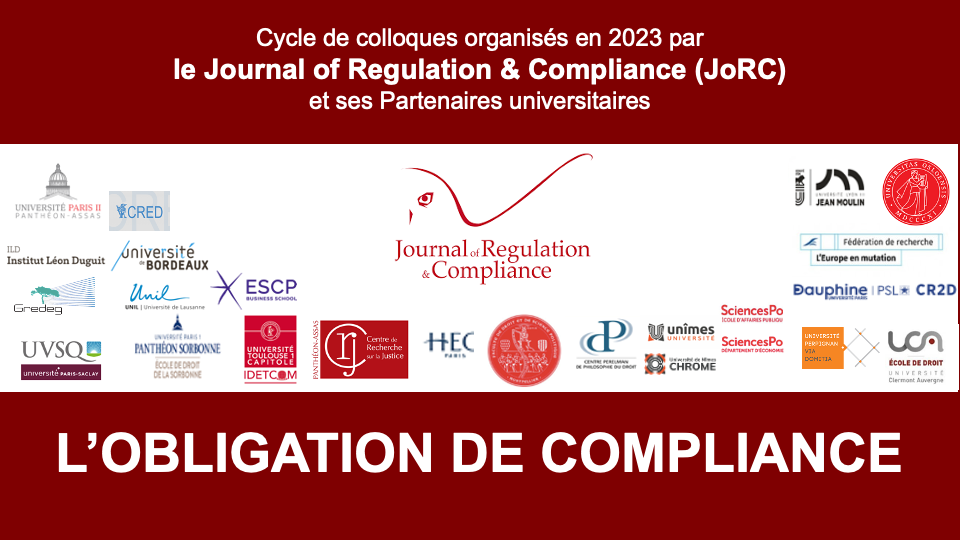
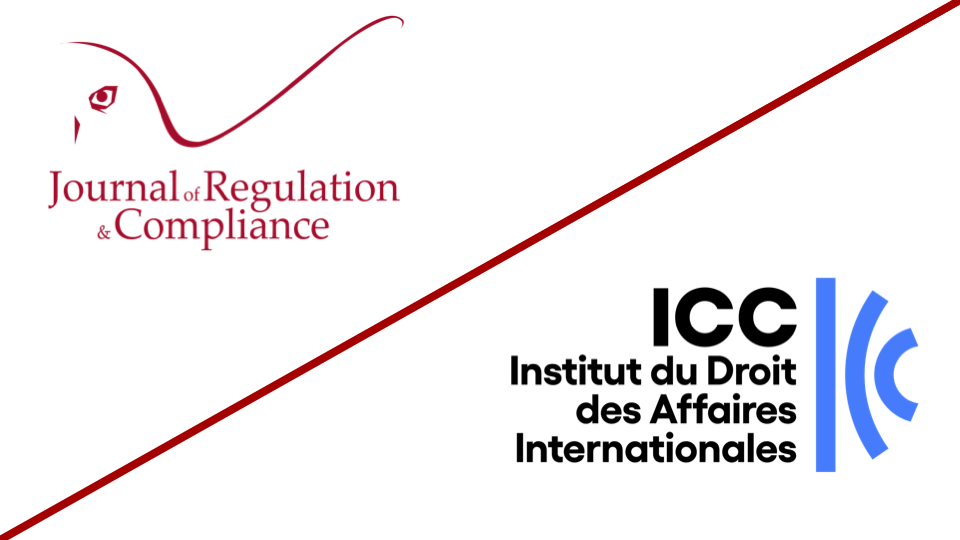
____
► Interviennent :
🎤 Laurent Aynès, emeritus Professor at Paris 1 Panthéon-Sorbonne University, Attorney, Darrois Villey Maillot Brochier (Paris)
🎤 Marie-Anne Frison-Roche, Professor of Regulatory and Compliance Law, Director of the Journal of Regulation & Compliance (JoRC)
🎤 Jean-François Guillemin, former General Secretary of the Bouygues Group
🎤 Christophe Lapp, Attorney, Advant Altana (Paris)
🎤 Jean-Baptiste Racine, Full Professor at Paris Panthéon-Assas University (Paris 2)
🎤 Eduardo Silva-Romero, President of the Institute of World Business Law of the ICC (Institute), Attorney, Wordstone (Paris)
____
🧮Read a detailed presentation of the event below⤵️
Feb. 9, 2024
Conferences

🌐follow Marie-Anne Frison-Roche on LinkedIn
🌐subscribe to the Newsletter MAFR Regulation, Compliance, Law
____
► Full Reference: M.-A. Frison-Roche, "Le renforcement des engagements de Compliance par le renvoi Ex Ante à l'arbitrage international" ("Reinforcing Compliance commitments by referring Ex Ante to International Arbitration"), in L. Aynès, M.-A. Frison-Roche, J.-B. Racine and E. Silva-Romero (dir.), L'arbitrage international en renfort de l'obligation de Compliance (International Arbitration in support of the Compliance Obligation), Journal of Regulation & Compliance (JoRC) and Institute of World Business Law of the ICC (Institute), Conseil Économique Social et Environnemental (CESE), Paris, February 9, 2024
____
🧮see the full programme of this event
____
🌐consult on LinkedIn a general presentation of this event, which links to a presentation of each speech (in French)
____
____
🔲see the slides used to support the presentation (in French)
____
📝This conference and the Working Paper on which it is based are to be linked with the article to be published in the book📘Compliance Obligation
____
🎤see a presentation of the conference "Préalable : ce qu'est l'Obligation de Compliance" ("Prerequisite: what is the Compliance Obligation"), given at the same symposium
____
🎤see a presentation of the conference "Préalable : ce qu'est un engagement" ("Prerequisite: the Commitment"), given at the same symposium
____
► Presentation of the conference: It was initially planned that I would speak on the subject Le renforcement des engagements de Compliance par le renvoi Ex Ante à l'arbitrage international (Reinforcing Compliance commitments through the Ex Ante referral to International Arbitration), but it was agreed with the other organisers of the symposium that after defining the concept of the Compliance Obligation📎
- The inclusion of an offer of arbitration in the field of Compliance implies considering it in a contract as well as in a non-contractual commitment, and studying which category of Compliance Obligation the offer may apply to.
- This insertion benefits from taking the form of a "graduated offer", in a crescendo organised by the company ex ante and offered to the stakeholders: conciliation, mediation and arbitration, in "circles of trust"📎
!footnote-3387 . This is supported by the current French amicable settlement policy. - The result was that I had to prepare a long "preliminary" discussion of what a "commitment" is, without which it seemed difficult to talk in concrete terms about the effective insertion of an offer of arbitration if we did not know whether such links or words had a constraining effect on the person issuing them in relation to the person benefiting from them. After discussions with the other speakers, it became clear that it would be more effective to give a talk devoted solely to the question of the legal definition of commitment. We therefore decided to allocate this second speaking slot to the notion of commitment. Since the written words do not have the same constraints, it will take up the initial construction, insisting on the different supports, either compliance contracts, or associations with compliance clauses, relating to different Compliance obligations, in particular on information or audit or Vigilance📎
!footnote-3388 , because the company must have the legal power corresponding to the mission that the State entrusts to it through Compliance📎!footnote-3389 . - The offer must be carefully drafted to explain its purpose, and its organisation must prove the reality of this purpose: to give access to a judge to people affected by the company's activity, and not to block it.
- This will therefore be available in detail in the forthcoming books:
- M.-A. Frison-Roche (ed.), 📕L'obligation de Compliance
- M.-A. Frison-Roche (ed.), 📘Compliance Obligation
________
🕴️M.-A. Frison-Roche, 🎤Préalable : ce qu'est l'obligation de Compliance (Prerequisite: the Compliance Obligation), in 🧮L'arbitrage international en renfort de l'obligation de Compliance (International Arbitration in support of the Compliance Obligation), 2024.
M.-A. Frison-Roche, Préalable : ce qu'est un engagement
🕴️M.-A. Frison-Roche, 🎤Préalable : ce qu'est un engagement (Prerequisite: the Commitment), in 🧮L'arbitrage international en renfort de l'obligation de Compliance (International Arbitration in support of the Compliance Obligation), 2024.
🕴️M.-A. Frison-Roche, 🚧Compliance and Trust, 2017.
🕴️M.-A. Frison-Roche, 🚧Conceiving Power, 2021.
Dec. 12, 2023
Conferences

► Référence complète : M.-A. Frison-Roche, enregistrement et animation d'une série d'entretiens sur le Droit de la Compliance, in J.-Ph. Denis, Fenêtres ouvertes sur la gestion, Xerfi Canal, tenus le 12 décembre 2023, diffusés en 2024.
____
► Présentation générale de la série, comprenant les entretiens successifs : 🧱Compliance - un sujet de choix pour nouer Droit et Gestion : La distinction des disciplines est justifiée, le droit d'une part, la gestion d'autre part : c'est maltraiter la réalité que, notamment, de dissoudre l'une dans l'autre (ce que Jankélévitch appelait "la réduction par déplacement d'une discipline") car chacune doit conserver son ancrage.
Ceci posé, parce que la réalité ne se construit suivant les disciplines, si l'on veut rendre compte de celle-ci, ou au moins en tenir compte, par exemple de la réalité des entreprises, il faut que les disciplines se croisent.
La compliance est un parfait terrain pour cela.
Merci à Jean-Philippe Denis, professeur de gestion, qui est depuis toujours ouvert à ce dialogue, de l'avoir concrétisé plus encore, en permettant une série d'interviews à la croisée du Droit et de la Gestion sur le média Xerfi Canal.
____
Dans un premier temps, 4 discussions ont été tenues entre Jean-Philippe Denis et moi-même sur les thèmes suivants :
- 🎬sur la nécessité pratique de faire converger l'analyse juridique et l'analyse de gestionnaire lorsqu'il s'agit de comprendre, maîtriser, promouvoir la compliance.
- 🎬sur l'existence de différents systèmes de compliance selon les zones du mondes
- 🎬sur la "civilisation" de la Compliance
- 🎬sur le fait que la Vigilance est la pointe avancée de la Compliance
Puis, dans un second temps
- 🎬avec 🕴️Jean-Baptiste Racine sur la manière dont l'arbitrage international est apte aujourd'hui à défendre les Buts Monumentaux de la Compliance, notamment les droits humains et les impératifs environnementaux.
- 🎬avec 🕴️Stanislas Pottier de la façon dont les entreprises intègrent cet impératif de compliance, notamment dans sa dimension environnementale, participent à la construction européenne par cette voie, et arrivent à faire connaissance avec ce personnage assez nouveau pour elle, au moins en France : le juge.
- 🎬 avec 🕴️Roch-Olivier Maistre du rôle que joue l'Arcom dans le nouveau système numérique qui se met en place, et quelle articulation se noue entre la Régulation et la Compliance, notamment pour mesurer en quoi la Compliance est un outil utile pour assurer une meilleure supervision des plateformes en ligne et lutter ainsi plus efficacement contre les phénomènes de manipulation de l’information et de haine en ligne.
- 🎬avec 🕴️Eduardo Silva-Romero de l'importance grandissante de l'arbitrage international pour les entreprises, arbitrage qui intègre les intérêts des États et répond aux impératifs de Compliance.
- 🎬avec 🕴️Christophe Lapp de la nécessité pratique de ne pas confondre la Compliance avec la simple conformité, notamment lorsque le juge est saisi, les Buts Monumentaux étant intégrés dans son raisonnement.
- 🎬avec 🕴️Jacques Beyssade du rapport entre la gouvernance et la Compliance, illustré dans une banque mutualiste et plus particulièrement dans le recrutement et la promotion des femmes à des postes de responsabilité.
____
____
🔓consulter ci-dessous une présentation de chaque interview mené avec un expert en Droit sur un sujet particulier de Droit de la Compliance⤵️
Sept. 7, 2023
Publications
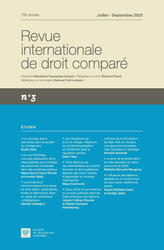
🌐follow Marie-Anne Frison-Roche on LinkedIn
🌐subscribe to the Newsletter MAFR Regulation, Compliance, Law
____
► Full Reference: M.-A. Frison-Roche & Arnoldo Wald, "Le cas Petrobras, une juste adéquation de la responsabilité pour protéger les personnes impliquées dans des systèmes globaux" ("The Petrobras case: the right balance of responsibility to protect those involved in global systems"), RIDC, July-September 2023, No. 3, pp. 563-582.
____
► Summary of the article: This article briefly outlines the main aspects of corporate liability in the capital market under Brazilian law, arising from the company’s duty to inform shareholders and investors, followed by a commentary on the recent partial award in an arbitration brought by minority shareholders against Petrobras, which underlines the legitimacy of the minority shareholders to engage the company’s liability.
________
Updated: Feb. 2, 2023 (Initial publication: June 23, 2021)
Thesaurus : Doctrine

► Full Reference: J. Jourdan-Marques, "L’arbitre, juge ex ante de la compliance ?" ("The arbitrator, ex ante judge of compliance?"), in M.-A. Frison-Roche (ed.), La juridictionnalisation de la Compliance, coll. "Régulations & Compliance", Journal of Regulation & Compliance (JoRC) and Dalloz, 2023, p. 317-334.
____
📕read a general presentation of the book, La juridictionnalisation de la Compliance, in which this article is published
____
► The summary below describes an article which follows an intervention in the scientific manifestation L'entreprise instituée Juge et Procureur d'elle-même par le Droit de la Compliance ("The company instituted Judge and Prosecutor of itself by Compliance Law"), co-organized by the Journal of Regulation & Compliance (JoRC) and the Faculty of Law Lyon 3. This colloquium was designed by Marie-Anne Frison-Roche and Jean-Christophe Roda, scientific co-directors, and took place in Lyon on June 23, 2021.
Due to the very close proximity of the content of this article to a scientific manifestation that was held previously, in the same series of colloquia, manifestation on Compliance and Arbitration, designed by Marie-Anne Frison-Roche and Jean-Baptiste Racine, and which took place in Paris on March 31, 2021 in Paris, it was decided with the author and the scientific managers of the scientific events concerned to publish the article not in Title I of the book, devoted to the topic of the Company instituted Judge and Prosecutor of itself by Compliance Law, but in Title III, devoted to the topic of Compliance and International Arbitration.
____
► Summary of the article (done by the Journal of Regulation & Compliance) : The article begins with a long introduction relating to the general relationship between Compliance and Arbitration.
Then the author in a first part examines the place of the Arbitration upstream of the occurrence of the dispute, aiming at the relations of the company in its organization with other companies for its economic activities, for example commercial agents. The author examines the way in which Arbitration can resolve difficulties which arise between them, including when these issues are otherwise apprehended by Compliance Law and the institutions in charge of it, in particular because of the facts of corruption are alleged and the fact is alleged by the debtor himself when payment has not yet been requested by the creditor. The legal question then becomes whether or not there is a "dispute".
Being even further upstream, the author takes the hypothesis of the adoption of a compliance program in which recourse to arbitration would be inserted by the Company, insertion which could then be at the origin of exemption from criminal liability, an arbitration award being able to produce such an effect if it is recognized in the legal order.
The second part of the article considers Arbitration in the absence of multiple parties, which could correspond to the acts issued by the Oversight Board of Facebook, this kind of tribunal and judge not being seized by parties to a litigation. It might be adequate to qualify this mechanism as an arbitration, even if this qualification is difficult to retain. In any case, if we did so by admission that a unilateral request gives rise to a jurisdictional mission, there should be guarantees surrounding such institutionalization. They can go through specific bodies for Compliance cases, outside or within existing arbitration institutions, which must then become the driving force in the matter. In addition, the choice of arbitrators should undoubtedly go through the institution itself so that impartiality remains unchallenged and profiles of arbitrators would be truly varied. The procedure would also have vocation to be inflected because of the absence of real litigation, justifying the adjustment of the adversarial principle (in the narrow sense of this one, linked to the debate) in particular by the intervention of amicus curiae and to avoid the fraud through arbitration and in procedure. In the absence of an adversary, the procedural office of the arbitrator could be reconsidered: without modifying the terms of the case, it would be appropriate for the arbitrator to have more power to decide on the adequate measures to be taken to remedy the non- conformity with compliance requirements. Finally, publicity seems to the author essential so that the arbitration is not instrumentalised by the parties, publicity which could also concern the debates and the documents produced. These admittedly very high requirements would in return give great credibility to the resulting award, justifying its scope, and one could consider labeling such a result, a label that the company could claim.
The author concludes that these transformations would move away so much from Arbitration that it would denature it, in particular because of the absence of litigation, but this allows Companies to outsource the management of the more and more heavier responsibility engendered by Compliance Law, by offering Compagnies the assistance of a judicial authority, as soon as the procedural guarantees are reinforced.
________
Updated: Feb. 2, 2023 (Initial publication: Sept. 1, 2021)
Thesaurus

► Full Reference: Cl. Debourg, "La compliance au stade du contrôle des sentences arbitrales" ("Compliance at the arbitral award review stage"), in M.-A. Frison-Roche (ed.), La juridictionnalisation de la Compliance, coll. "Régulations & Compliance", Journal of Regulation & Compliance (JoRC) and Dalloz, 2023, p. 369-405.
____
📕read a general presentation of the book, La juridictionnalisation de la Compliance, in which this article is published
____
► Summary of the article (done by the Journal of Regulation & Compliance):
________
July 6, 2022
Thesaurus : Doctrine
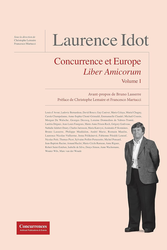
► Référence complète : L. d'Avout, "L'arbitrabilité sous condition : réflexions au départ de l'antitrust", in C. Lemaire & F. Martucci (dir.), Liber Amicorum Laurence Idot. Concurrence et Europe, vol. I, préf. C. Lemaire & F. Martucci, avant-propos B. Lasserre, Concurrences, 2022, pp. 177-192
____
► Résumé de l'article (fait par l'auteur) : "À travers l'arbitrabilité, l'on répond en principe de façon binaire à la question de l'admissibilité du règlement privatisé d'un litige. Ce concept juridique permet-il également de restreindre les marges de manœuvre des arbitres internationaux dans l'exercice de leur mission juridictionnelle, par une admission de l'arbitrage subordonnée au respect d'un régime juridique donné (loi étatique, convention internationale, etc.) ? Une réponse positive peut être formulée dans certains cas, moyennant l'étude des liens entre la règle d'arbitrabilité et le contrôle étatique subséquent des sentences arbitrales. Lorsque le contrôle de compatibilité des sentences est effectué non seulement au regard de principes mais aussi de certaines règles internationalement impératives, telles celles du droit de la concurrence, l'on peut conclure en amont à la subordination de l'arbitrabilité du litige au respect de ces règles. Une corrélation ou un lien causal, apparaît ainsi (ou est susceptible d'apparaître), dans certains secteurs économiques sensibles, entre la définition par les collectivités publiques des litiges susceptibles d'être arbitrés, l'encadrement consécutif de la mission du juge privé choisi par les parties et le contrôle, ultérieur par les juges étatiques, de l'admissibilité du produit de cette justice privée. Ce lien causal exprime une arbitrabilité de type conditionnel qui, loin de fragiliser le règlement privatisé des litiges internationaux, oeuvre au contraire à l'insertion cohérente de l'arbitrage dans le système plus général du contentieux transnational.".
____
🦉Cet article est accessible en texte intégral pour les personnes inscrites aux enseignements de la Professeure Marie-Anne Frison-Roche
________
July 6, 2022
Thesaurus : Doctrine

► Référence complète : C. Lemaire & F. Martucci (dir.), Liber Amicorum Laurence Idot. Concurrence et Europe, vol. I, préf. C. Lemaire & F. Martucci, avant-propos B. Lasserre, Concurrences, 2022, 500 p.
____
____
____
► Résumé de l'ouvrage (fait par l'éditeur) : "La carrière de Mme le Professeur Laurence Idot appelle un hommage. Sa pensée a mûri le droit de la concurrence, tant par ses écrits que ses enseignements ou son activité à l'Autorité de la concurrence. Aucun de ses anciens collègues ou étudiants n'est resté insensible à sa finesse d'esprit et sa personnalité exceptionnelle. L'impact de sa pensée, de son enseignement et de ses consultations justifie que, dans la plus pure tradition universitaire, des Mélanges lui soient dédiés.
Théoricienne confrontée à la réalité des dossiers, Laurence Idot a marqué la recherche par son analyse fine et habile des interactions entre le droit de la concurrence, le droit de l'Union européenne, et le droit de l'arbitrage et le droit international. A l'heure du développement des recours à l'arbitrage international et de la croissance du droit européen de la concurrence, ses écrits et sa compréhension du droit conservent leur actualité.
L'originalité du parcours du Professeur Idot tient aux chemins qu'elle a tracés dans des droits en développement : le droit européen d'un côté, le droit de la concurrence de l'autre - auxquels elle a chacun consacré une revue. Les destins de Concurrence et Europe sont désormais entremêlés.".
____
📝lire l'article de Marie-Anne Frison-Roche : "L'appui du Droit de la Compliance pour la maîtrise quotidienne du Droit de la concurrence"
________
June 1, 2021
Compliance: at the moment

March 31, 2021
Conferences
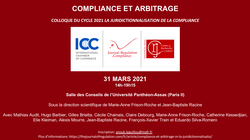
 Référence complète: Frison-Roche, M.-A.,Compliance et Arbitrage : un adossement, rapport de synthèse in Frison-Roche, M.-A. & Racine, J.-B. (dir.) Compliance et Arbitrage, Colloque coorganisé par le Journal of Regulation & Compliance (JoRC) et le Centre de recherches sur la Justice et le Règlement des Conflits (CRJ) de l'Université Panthéon-Assas (Paris II), avec le soutien de la Cour Internationale d'Arbitrage, Paris, 31 mars 2021.
Référence complète: Frison-Roche, M.-A.,Compliance et Arbitrage : un adossement, rapport de synthèse in Frison-Roche, M.-A. & Racine, J.-B. (dir.) Compliance et Arbitrage, Colloque coorganisé par le Journal of Regulation & Compliance (JoRC) et le Centre de recherches sur la Justice et le Règlement des Conflits (CRJ) de l'Université Panthéon-Assas (Paris II), avec le soutien de la Cour Internationale d'Arbitrage, Paris, 31 mars 2021.
____
🗓️ Lire le programme de ce colloque
____
✏️Le rapport de synthèse a été réalisé au fur et à mesure que se déroulait le colloque : se reporter aux notes prises durant le colloque.
____
Voir le rapport de synthèse en vidéo
Voir l'intégralité du colloque en vidéo.
___
📅 Ce colloque s'insère dans le cycle de colloques 2021 organisé par le Journal of Regulation & Compliance (JoRC) et ses partenaires autour de la Juridictionnalisation de la Compliance.
📕 Les interventions ont servi de première base à la réalisation d'un titre dans l'ouvrage dirigé par Marie-Anne Frison-Roche, dont la version française, La juridictionnalisation de la Compliance, est co-édité par le Journal of Regulation & Compliance (JoRC) et Dalloz.
📘 Elles ont été de la même façon la première base pour la version anglaise de l'ouvrage, Compliance Juridictionalisation, co-édité par le Journal of Regulation & Compliance (JoRC) et Bruylant.
_________
March 31, 2021
Conferences

 Full reference: Frison-Roche, M.-A., Compliance et arbitrage. Rapport de synthèse: un adossement (Compliance and Arbitration: a Backing. Conclusion), in Frison-Roche, M.-A. & Racine, J.-B., Compliance et Arbitrage (Compliance and Arbitration), Colloquium co-organised by the Journal of Regulation & Compliance (JoRC) and the Centre de recherches sur la Justice et le Règlement des Conflits (CRJ) of Panthéon-Assas University (Paris II), with the support avec the International Court of Arbitration, Paris, 31st of March 2021
Full reference: Frison-Roche, M.-A., Compliance et arbitrage. Rapport de synthèse: un adossement (Compliance and Arbitration: a Backing. Conclusion), in Frison-Roche, M.-A. & Racine, J.-B., Compliance et Arbitrage (Compliance and Arbitration), Colloquium co-organised by the Journal of Regulation & Compliance (JoRC) and the Centre de recherches sur la Justice et le Règlement des Conflits (CRJ) of Panthéon-Assas University (Paris II), with the support avec the International Court of Arbitration, Paris, 31st of March 2021
_____
Read the program of this colloquium
See Marie-Anne Frison-Roche's conclusion in video (in French, with English subtitles)
These notes of the conclusion have been written as the colloquium took place.
See the video of the entire colloquium (in French, with English subtitles)
___
This colloquium is part of the Cycle of colloquium 2021 organized by the Journal of Regulation & Compliance (JoRC) and its partners around the topic Compliance Juridictionnalization.
This manifestation is in French but the interventions will be the basis for a specific chapter of the English collective book directed by Marie-Anne Frison-Roche, Compliance Juridictionnalization, co-published by the JoRC and Bruylant.
An equivalent book in French, La Juridictionnalisation de la Compliance, directed by Marie-Anne Frison-Roche, will be co-published by the JoRC and Dalloz.
Read the notes established for the conclusion below ⤵️
Nov. 12, 2020
Thesaurus : Doctrine
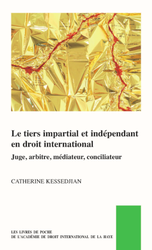
Full reference: Kessedjian, C., Le tiers impartial et indépendant en droit international. Juge, arbitre, médiateur, conciliateur, Académie de Droit international de La Haye, 2020, 769p.
Read the forth of cover (in French)
Read the table of content (in French)
Feb. 17, 2015
Blog

À affaire célèbre, arrêt fameux.
Rendu le 17 février 2015, l'arrêt de la Cour d'appel de Paris dans ce qu'il est convenu d'appeler "l'affaire Tapie" était très attendu.
On se souvient que la sentence arbitrale du 7 juillet 2008 a estimé que lors de la cession des titres de la société Adidas, le Crédit Lyonnais avait commis des fautes dans le conseil qu'il devait au vendeur, le groupe Tapie, octroyant en conséquence une indemnisation à celui-ci pour un montant élevé.
Le CDR, structure privée de defeasance adossée à l'EPFR, structure de l'État, avait tenté plusieurs types de recours contre la sentence, dont un recours en révision. Pour réussir, celui-ci doit s'appuyer sur des "éléments nouveaux et déterminants". En outre, s'il s'agit d'un arbitrage interne (et non pas d'un arbitrage international), la Cour d'appel de Paris si elle accueille une telle voie de recours peut décider de se substituer au Tribunal arbitral et connaître de l'affaire au fond.
Le reste de l'arrêt peut paraître factuel, le dossier civil étant largement alimenté par le dossier pénal, puisque désormais une instance pénale en cours n'oblige plus le juge civile à suspendre le cours du procès qui se déroule devant lui et lui permet au contraire de puiser dans le premier dossier .
L'on se demande ainsi si l'on ait enfin à la fin de l'histoire. Ainsi en est-il de l'obligation ou non de Bernard Tapie de rembourser immédiatement les fonds reçus. Sans doute, puisque les parties sont remises en l'état du fait de la rétractation de la sentence. Dès lors, il lui faut bien rendre ce qu'il est censé n'avoir jamais reçu. Mais parce que l'arrêt ne lui ordonne pas expressément, ne va-t-il pas opposer une inertie contraignant les demandeurs à soit solliciter de la Cour une interprétation de son arrêt soit aller devant le juge de l'exécution ?
Mais l'arrêt contient également une discussion juridique de fond. En effet, suivant que l'arbitrage est "interne" ou "international", les règles de droit changent. C'est pourquoi les parties se sont beaucoup disputées à ce propos. La Cour d'appel de Paris choisit de qualifier l'arbitrage d' "arbitrage interne" : bien joué, puisque cela lui permet de trancher le litige au fond après avoir rétracté la sentence au titre de l'action en révision.
Mais la qualification est un art juridique contrôlée par la Cour de cassation. Après une longue évolution jurisprudentielle, le Code de procédure civile a fini par qualifier l'arbitrage international par l'objet sur lequel il porte : un "intérêt du commerce international". Est-ce le cas en l'espèce ?
Feb. 17, 2015
Interviews

L'arrêt de la Cour d'appel de Paris, saisie d'un recours en révision, est attendu pour le début de l'après-midi.
Le recours en annulation de la sentence arbitrale prononcée en faveur de Bernard Tapie contre le CDR a été rejeté par un arrêt précédant de la Cour d'appel, du fait d'une prescription de l'action.
Le recours en révision pourrait être déclaré recevable du fait d' "éléments nouveaux", condition de recevabilité de ce type de recours.
Ces "éléments nouveaux" pourraient être puisés par le juge civil (ici la Cour d'appel de Paris) dans le dossier en cours d'instruction par les magistrats dans l'instance pénale par ailleurs en cours.
Si l'action en révision est déclarée recevable, ce qui est un premier point, l'enjeu crucial est alors le suivant.
Soit, et c'est une question de fond, l'article est qualifié par la Cour d'appel de Paris, d' "arbitrage interne", ce qui autorise la Cour de statuer au fond sur le litige qui oppose depuis des années le groupe Tapie au Crédit Lyonnais. Mais cette qualification n'est en rien acquise.
En effet, le Code de procédure civile et la jurisprudence qualifie d' "arbitrage international" tout arbitrage qui met en cause les "intérêts du commerce international". Or, les titres cédés (les titres de la société Adidas) ne sont pas français. Les sociétés qui ont été utilisées pour le montage ne sont pas françaises. Seul le contrat de mandat donné à la banque ramène à des intérêts de droit français. Cela peut-il suffire à rendre l'arbitrage de "droit interne" ?
Si cela ne l'était pas, et beaucoup en doute, alors si les éléments sont suffisants pour ouvrir une révision qui anéantit la première procédure d'arbitrage, parce que l'arbitrage serait de nature internationale, la Cour d'appel de Paris ne pourrait pas pour autant statuer sur le fond.
Il faudrait alors que le Tribunal de commerce de Paris désigne de nouveaux arbitres. Une demande en ce sens a déjà été formée devant lui. Il a pour l'instant sursis à statuer.
Sauf à ce que la Cour d'appel de Paris, par exemple pour la bonne administration de la justice, pour des raisons d'ordre public économique, pour la protection de la place arbitrale de Paris, décide d'évoquer l'affaire, selon les principes généraux de la procédure. Pourquoi pas.
Sept. 8, 2014
Publications
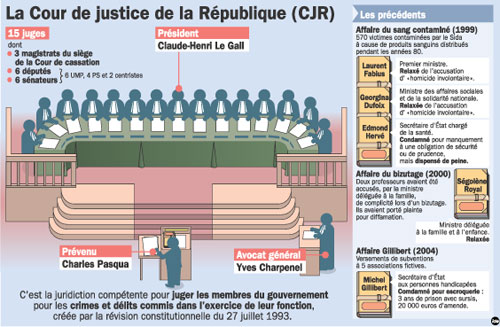 Le 26 août 2014, la commission d'instruction de la Cour de justice de la République a mis en examen Madame Christine Lagarde. Le texte utilisé pour y procéder est l'article 432-16 du Code pénal qui permet de reprocher, au titre de faute pénale, la "négligence" d'un dépositaire de l'autorité publique qui a permis à un tiers de détourner des fonds publics.
Le 26 août 2014, la commission d'instruction de la Cour de justice de la République a mis en examen Madame Christine Lagarde. Le texte utilisé pour y procéder est l'article 432-16 du Code pénal qui permet de reprocher, au titre de faute pénale, la "négligence" d'un dépositaire de l'autorité publique qui a permis à un tiers de détourner des fonds publics.
Le comportement de Madame Christine Lagarde est celui qu'elle a eu lorsqu'elle était alors Ministre des Finances et de l'Économie, en décidant de recourir à l'arbitrage pour trouver une issue aux multiples contentieux opposant indirectement l'État et le groupe Bernard Tapie, puis en décidant de ne pas former un appel-nullité contre la sentence arbitrale de 2008.
Cette mise en examen est une atteinte à la séparation des pouvoirs, qui est un principe constitutionnel majeur, visé par l'article 16 de la Déclaration des droits de l'homme et du citoyen, qui rappelle que sans ce principe "il n'y a point de Constitution".
Il s'agit d'une mise sous tutelle du Politique par les magistrats. En effet , un ministre, parce qu’il est ministre et non pas administrateur, doit pouvoir décider. Doit pouvoir ne pas suivre l’opinion de son administration.
Ne pas l'admettre, c'est de la part des magistrats non seulement ne pas suivre toute la jurisprudence mais encore violer le coeur de la Constitution française.
Updated: July 31, 2013 (Initial publication: Sept. 20, 2011)
Teachings : Les Grandes Questions du Droit, semestre d'automne 2011

June 25, 2013
Interviews

Référence complète : FRISON-ROCHE, Marie-Anne, Si les recours en révision aboutissaient, Bernard Tapie devrait tout rembourser, Le Parisien, 25 juin 2013, p.2.
Dec. 4, 2009
Interviews

Référence complète : La cinquième édition du concours d'arbitrage est lancée !, Interview de Frison-Roche M-A., et Wehrli Y., par Olivia Dufour, Petites affiches, n°242, 4 décembre 2009, p. 3-6.
Cette interview a été faite à propos du concours international d'arbitrage de Paris créé à l'initiative de Marie-Anne Frison-Roche en 2005 dans la Chaire Régulation de Sciences po.
Depuis, l'origine de ce concours d'arbitrage international simulé se tient chaque année et co-organisé avec le soutien d'entreprises internationale, par exemple TOTAL (partenaire de la Chaire Régulation) ou le cabinet Clifford.
C'est pourquoi, en décembre 2009 Marie-Année Frison-Roche directeur de la Chaire Régulation et Yves Wehrli managing partner du cabinet Clifford ont répondu à la presse juridique pour présenter l'édition du concours qui s'est déroulé en 2010.
April 14, 2005
Publications
Référence complète : FRISON-ROCHE, Marie-Anne, "Arbitrage et droit de la régulation", in Le contrat d’arbitrage, éd. Légis, et in Les risques de régulation, coll. « Droit et Économie de la Régulation », t.3, Dalloz/Presses de Sciences Po, p.223-240.